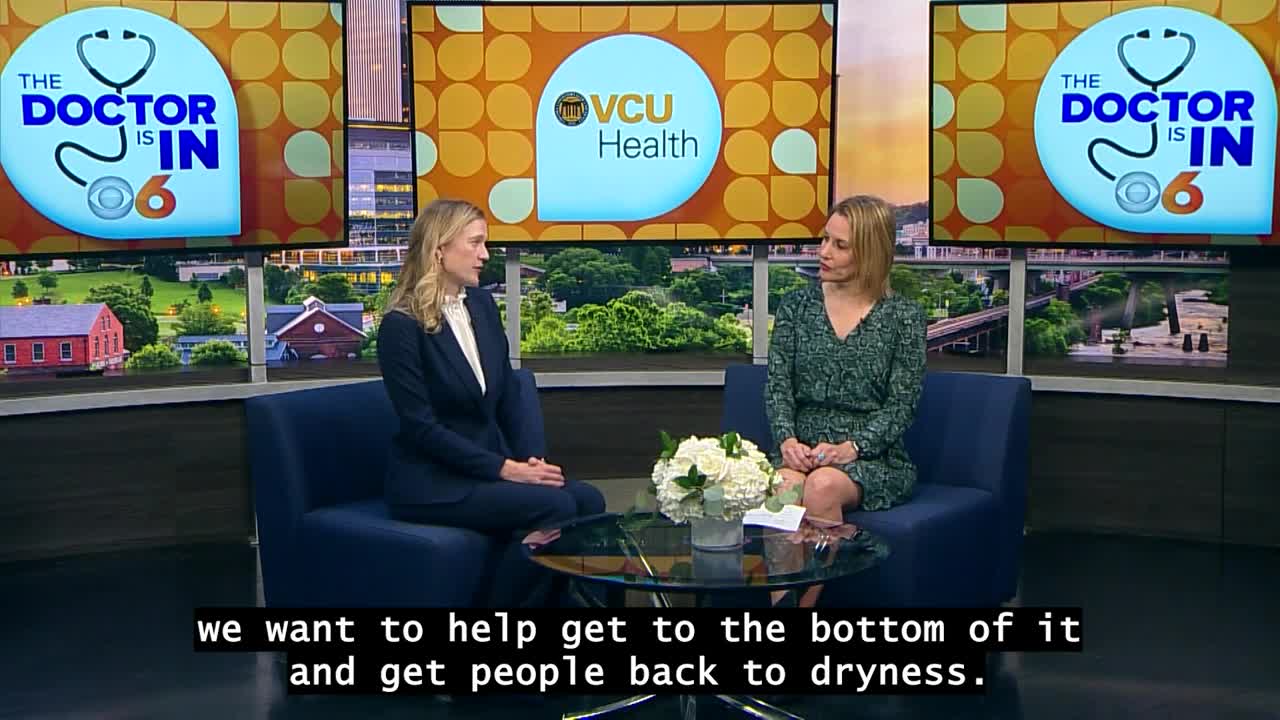RICHMOND, Va. -- The Doctor Is In and you have questions. Living with bladder issues can impact your sleep, emotional well-being, and overall quality of life. Dr. Linda Burkett is a Urogynecologist with VCU Health and is here to answer these five questions about overactive bladder and how to manage them.
What exactly is overactive bladder and how do you know that you have it?
Overactive bladder is defined by having a sudden strong urge to urinate. Patients really describe having to run to the bathroom, maybe having leakage, also increased frequency during the day or at night. It can really abruptly affect people's sleep, their ability to exercise, even do the things that they love, so we want to find treatments that are going to help them get back on track and back to their activities.
What causes someone to have an overactive bladder?
The overactive bladder is a spasm of the bladder muscle which means it’s the bladder muscle contracting at the wrong time. There are certain risk factors for this like aging, obesity, hormonal changes like menopause and pregnancy, and also neurologic conditions like stroke can affect the bladder. No matter what the cause, we want to help get to the bottom of it and get people back to dryness.
What are some of the treatment options for an overactive bladder?
The good news is there are several treatment options. We usually start with simple things like lifestyle modification, focusing on weight loss, healthy habits in terms of avoiding bladder irritants. We're fortunate to have a really great team of pelvic floor physical therapists that work on bladder strength, pelvic strength, bladder retraining. And then we have more advanced treatment options like therapists that work on bladder strength, pelvic strength, bladder retraining. And then we have more advanced treatment options like medications and office procedures. A few patients will need more advanced surgeries, but we want to find the combination of things that are going to help people get what they need.
Looking to the future. You currently have some research that is connecting the bladder to the brain. Can you tell us about it?
So, we know a lot about some treatment options and what symptoms people present with overactive bladder, but we don't really know what goes wrong and what truly causes it so we’re working with a team of researchers. We have grants from the National Institute of Health, and we're trying to understand more about that brain and bladder connection. We have some neuroimaging techniques that have looked at the part of the brain that makes the decision to void, and found abnormalities in patients with overactive bladder. We're hoping to take this information and work in the future to maybe personalize treatment options and be able to better predict what's going to help individual patients to get back to that state of dryness.
What makes the VCU health team so unique in treating overactive bladder?
We have a great pelvic health team and we work with all the adjacent specialties like
gastroenterology, physical therapy, colorectal surgery and really provide care for any area that patients may need. We’re able to provide that care in the same location, do surgeries together to make sure that we're taking care of all of patient's pelvic health needs and you can even get an appointment the same day.
And you can get an appointment in the same day. Yes, ma'am.
For more information, you can give them a call at (804) 323-1180. Or you can visit the website www.vcuhealth.org.
This segment is sponsored by VCU health.



